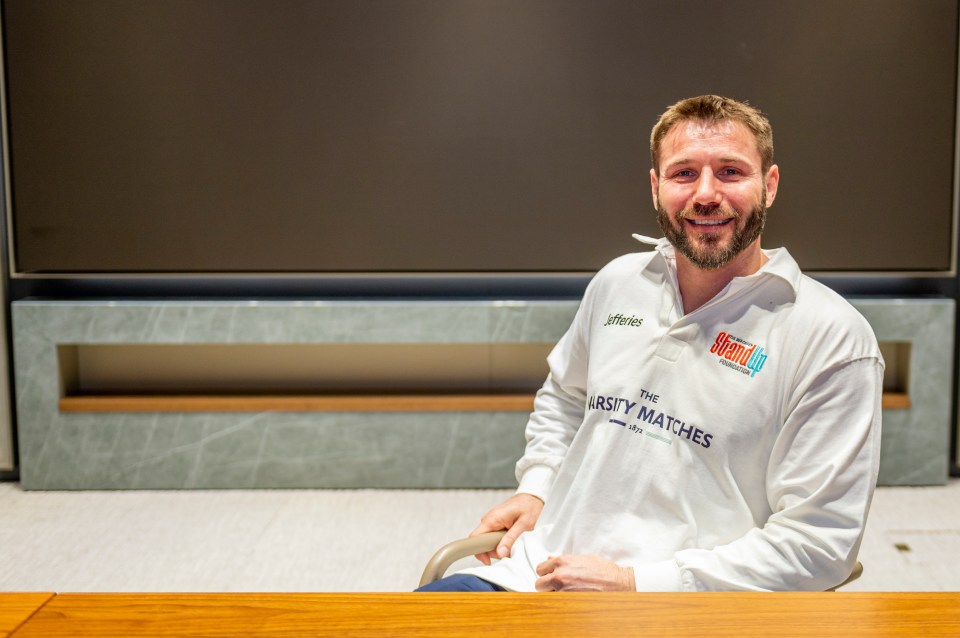Ben Cohen ready to admit defeat in battle to save anti-bullying foundation

England Rugby World Cup winner Ben Cohen has revealed that his anti-bullying foundation StandUp could be forced to close in the coming months.
“I will say this and no one knows it,” Cohen told City A.M. “I am probably going to close it. We’ve had Covid-19, Brexit, Ukraine and we’re probably going to hit a recession and we need money.
“We will probably shelve it for 18 months or fully close it. And I am sad, it’s not a sob story, but I’m sad. We’ve done some amazing stuff but we won’t be the first and we won’t be the last charity to go under.
“I have to look back in great fondness with the people that I’ve met, and the people that we’ve helped, because this foundation has added some strings to my bow of core values.
“It’s not just about being a role model, it’s about having a different outlook and understanding. I am forever learning.”
Woodward key Cohen influence
What started out as Cohen being a sporting star for rugby fans has transformed into him being an icon for those affected by bullying and underrepresentation.
Cohen, an integral member of England’s 2003 World Cup winning squad, has run the Ben CohenStandUp Foundation – the first of its kind dedicated to raising awareness of long-term effects of bullying – since 2012.
The foundation works throughout the anti-bullying spectrum but has a key focus on the LGBTQ+ society due to a higher likelihood of being a victim of bullying.
Cohen has become a key ally for the community and has appeared in Attitude and GT magazines.
The 43-year-old tragically lost his father, brother of 1966 football World Cup winner George Cohen, in 2000 when he was injured protecting an attack victim.
The 57-cap England player has since described his then head coach Sir Clive Woodward as a major influence on him both professionally and personally, having been capped for the first time in the same year that he lost his father.
“I’ll tell you now,” Cohen said. “When I look back at what Clive put in place, and what I look at in business today, it was absolutely phenomenal.
“Actually, a lot of people probably look at what he put in place – he gave us a platform for us to perform.”
Woodward was in charge of England between 1997 and 2004 and was tasked with taking the side from the amateur into the professional era.
England improved dramatically in his tenure and won the World Cup against Australia in their own back yard in 2003 – an occasion remembered mostly for Jonny Wilkinson’s winning drop goal.
Providing the platform
“Clive was the biggest influence when it came to people pushing me to achieve greatness,” Cohen added. “He created an environment that gave people the platform to go and perform.
“His philosophy was that he’d give us the best coaches, food, hotel, clothes and trainers but if you’re not going to perform then you can’t be here.
“England never had that culture before, it was what Clive brought in. You look from 1998 to 2003, it didn’t matter who came into the side or who the players were, everyone was welcome.
“We could then create three or four teams who were world class and I remember being in that World Cup team thinking I wouldn’t make the team. That’s the truth.
“That’s the pressure of sport, and you grow up in an environment that’s very different to civvy street.
“I don’t mean to be rude but it’s f*****g horrible, civvy street – at least in sport they stab you in the belly.”
Ben Cohen spoke to City A.M. about his StandUp foundation, helping young people affected by long-term bullying. More information can be found at www.standupfoundation-uk.org